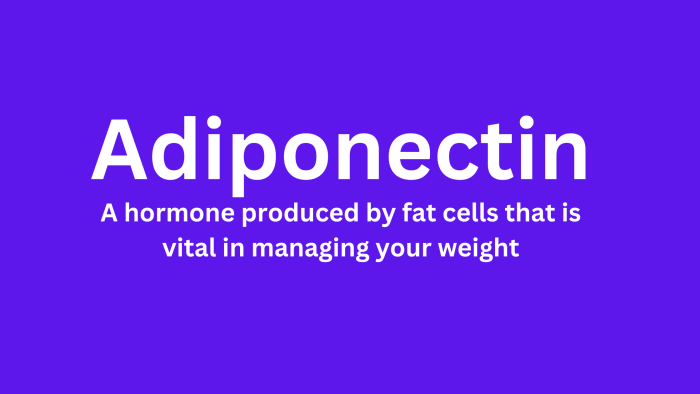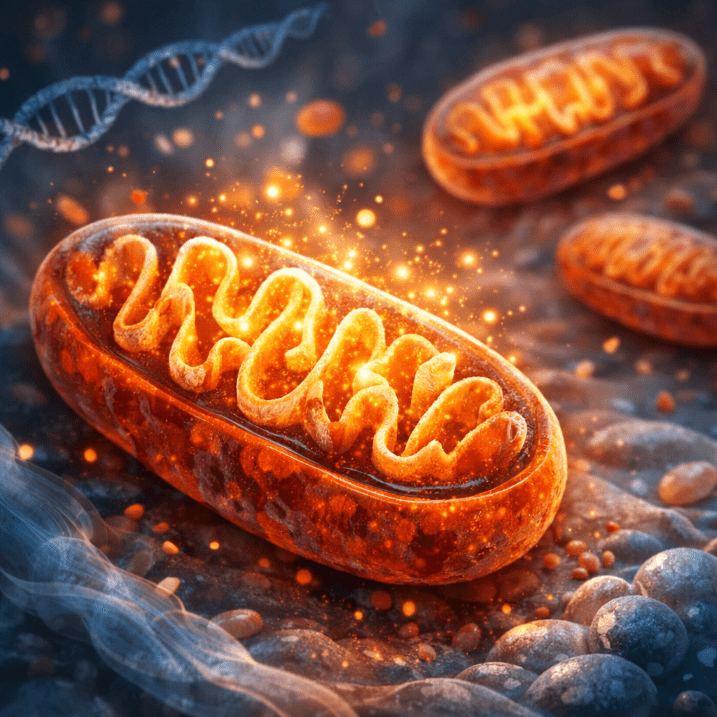The Importance of This Metabolism-Supporting Hormone with a Toronto Naturopath
This post explores the crucial hormone adiponectin and its impact on human health. It discusses how diet and lifestyle choices influence this beneficial fat-derived hormone and how optimizing adiponectin levels can improve metabolism and reduce insulin resistance.
Adiponectin is a hormone secreted by adipose tissue, also known as fat cells. This hormone regulates glucose metabolism, lipid metabolism, and inflammation. This protective hormone released by adipose tissue has become a hot topic in the health and wellness community due to its potential to help individuals achieve their weight loss and overall health goals.
As a naturopathic doctor, I believe that understanding the role of adiponectin in the body is essential for optimizing health and preventing chronic diseases. In this blog post, I will provide an overview of this important player in metabolic balance, its production in the body, its importance in maintaining good health, and strategies to increase its production.
What is Adiponectin?
Adiponectin is a protein hormone primarily produced by adipose tissue, also known as fat cells. Adipose tissue stores energy as fat. This beneficial hormone is released into the bloodstream, where it travels to different body parts to regulate various physiological processes.
This healthy hormone plays a crucial role in regulating glucose and lipid metabolism. It increases insulin sensitivity, which means that it helps the body to use glucose more efficiently. It also promotes the breakdown of fatty acids in adipose tissue, which helps to reduce the amount of fat stored in the body.
Why is Adiponectin Important?
Adiponectin is essential for maintaining good health. Low levels have been linked to several chronic diseases, including type 2 diabetes, obesity, and cardiovascular disease. Individuals with lower levels of this weight, inflammation, and metabolic health hormone are at a higher risk of developing these conditions.
Low levels of this natural anti-inflammatory hormone have also been associated with inflammation. Inflammation is a natural response by the body to injury or infection, but chronic inflammation can lead to chronic diseases. Adiponectin has anti-inflammatory properties, and studies have shown that higher adiponectin levels are associated with lower levels of inflammation.
How to Increase Adiponectin Production
Several strategies can help individuals increase their levels of this healthy hormone. These include dietary changes, exercise, and herbal supplements.
Dietary Changes to Improve Adiponectin
Certain foods, such as salmon, sardines, and flaxseed, have been found to increase adiponectin production. These foods are high in omega-3 fatty acids, which have anti-inflammatory properties. Studies have shown that they can increase adiponectin levels and reduce inflammation.
Other foods that have been found to increase levels of this beneficial hormone include:
- Berries, such as blueberries and strawberries
- Nuts, such as almonds and walnuts
- Legumes, such as lentils and chickpeas
- Whole grains, such as brown rice and quinoa
- Vegetables such as spinach, kale, and broccoli
- Conversely, diets high in saturated fats, trans fats, and processed foods have been found to reduce adiponectin production. These foods can lead to inflammation and insulin resistance, which can decrease this key hormone involved in blood sugar and fat regulation.
Exercise:
Regular exercise has been found to increase the level of this metabolism-supporting hormone. Studies have shown that both aerobic exercise and resistance training can increase its production. Aerobic exercise, such as running or cycling, is more effective at increasing the level of this hormone than resistance training, but both forms of exercise can be beneficial.
Herbal Supplements That Increase Adiponectin:
Several herbal supplements have been found to increase the production of this metabolism-supporting hormone. These include:
Resveratrol
Resveratrol is a compound found in red wine, grapes, and berries that has been found to increase the production of this hormone. It has also been shown to increase insulin sensitivity and reduce inflammation, making it a promising supplement for individuals looking to increase their adiponectin levels.
Curcumin
Curcumin is a compound found in turmeric that has anti-inflammatory properties. Studies show it can increase this key hormone involved in blood sugar and fat regulation and improve insulin sensitivity.
Green tea extract
Green tea extract contains compounds called catechins, which have been found to increase adiponectin levels. It also has anti-inflammatory properties and can improve insulin sensitivity.
Vitamins and Minerals to Increase Adiponectin
Several vitamins and minerals have also been found to increase the production of this hormone. These include:
Vitamin D
Studies show that individuals with higher vitamin D levels have higher adiponectin levels. Vitamin D has also been found to improve insulin sensitivity and reduce inflammation.
Magnesium
Magnesium is an essential mineral that plays a role in glucose metabolism. Studies show magnesium supplementation can increase this vital player in metabolic balance and improve insulin sensitivity.
In conclusion, this hormone is essential in regulating glucose metabolism, lipid metabolism, and inflammation. Low levels of it have been linked to several chronic diseases, including type 2 diabetes, obesity, and cardiovascular disease.
Individuals can increase their production through dietary changes, exercise, herbal supplements, and vitamins and minerals. Foods that are high in omega-3 fatty acids, such as salmon, sardines, and flaxseed, have been found to increase the levels of this metabolism-supporting hormone, as have berries, nuts, legumes, whole grains, and vegetables.
Regular aerobic and resistance training exercises have been found to increase the levels of this hormone and help improve insulin sensitivity. Herbal supplements such as resveratrol, curcumin, green tea extract, and vitamins and minerals such as vitamin D and magnesium have also been found to increase the production of this hormone secreted by fat cells.
As a naturopathic doctor, optimizing adiponectin levels is vital for maintaining good health and preventing chronic diseases. However, it’s important to note that increasing levels of this beneficial hormone is just one piece of the puzzle. Maintaining a healthy diet and lifestyle, reducing stress, and getting enough sleep are also essential for achieving optimal health.
References:
Kadowaki T, Yamauchi T. Adiponectin and adiponectin receptors. Endocr Rev. 2005;26(3):439-51.
Waki H, Yamauchi T, Kamon J, et al. Impaired multimerization of human adiponectin mutants associated with diabetes. Molecular structure and multimer formation of adiponectin. J Biol Chem. 2003;278(41):40352-63.
Fruebis J, Tsao TS, Javorschi S, et al. Proteolytic cleavage product of 30-kDa adipocyte complement-related protein increases fatty acid oxidation in muscle and causes weight loss in mice. Proc Natl Acad Sci U S A. 2001;98(4):2005-10.
Matsuzawa Y, Funahashi T, Kihara S, Shimomura I. Adiponectin and metabolic syndrome. Arterioscler Thromb Vasc Biol. 2004;24(1):29-33.
Achari AE, Jain SK. Adiponectin, a Therapeutic Target for Obesity, Diabetes, and Endothelial Dysfunction.

